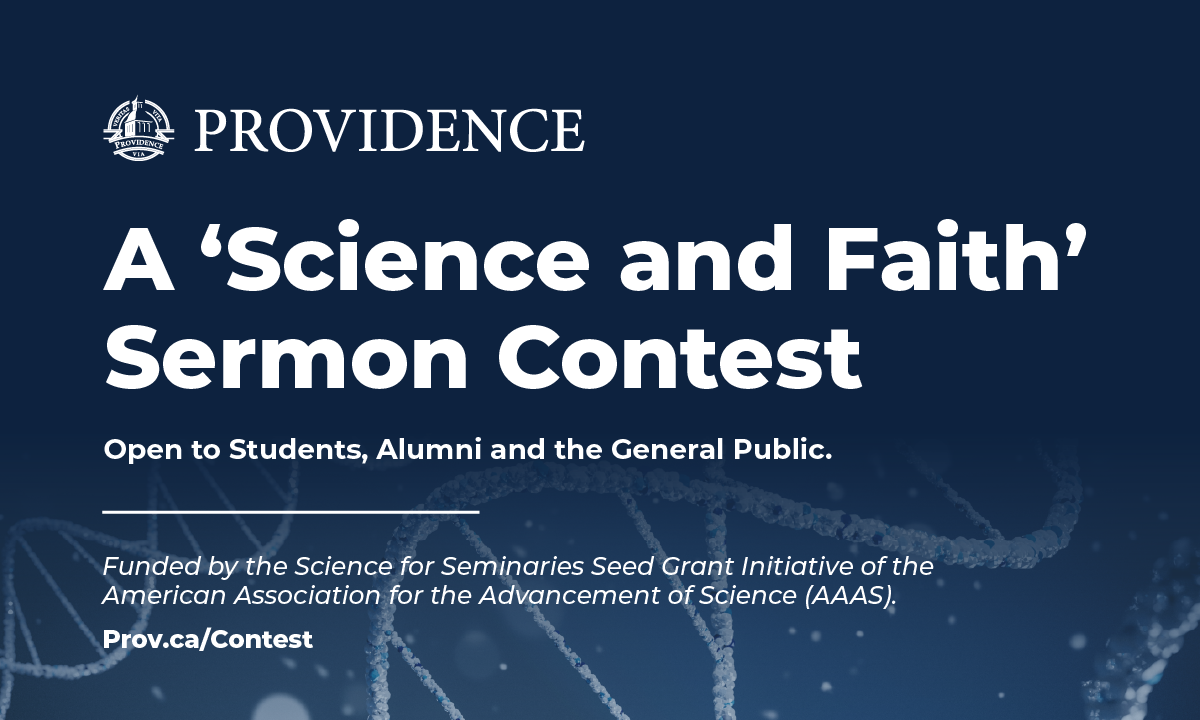Science and Faith Sermon Contest
“What May I Hope?”: A Biblical and Theological Studies Symposium
The video recording of Providence Theological Seminary’s recent symposium on the theme of eschatological preaching is now available on YouTube. The recording features Dr. Tim Perry’s presentation “What May I Hope?: A Plea for Eschatological Preaching,” my response, and a time of discussion.
First World Problems
I was struck by the following comment made by a student from Myanmar who is enrolled in one of my courses: “In my country people are dying because they cannot get the vaccine; in yours people are dying because they will not take it.”
Science for Seminaries at Providence in the Winnipeg Free Press
I was recently interviewed by John Longhurst of the Winnipeg Free Press about the Science for Seminaries Seed Grant that Providence Theological Seminary has recently received. Overall, it’s a positive piece, although I was slightly misrepresented on one point. I mentioned that Augustine, Aquinas, and Calvin were all interested in and acquainted with the best science of their day, not that they were scientists per se. You can read the full article here.
Remembering Rightly: A Sermon for Remembrance Sunday
The following is the text of a sermon I preached at St. John’s Presbyterian Church in Winnipeg this past Sunday for Remembrance Sunday. The assigned lectionary readings were: 1 Kings 17:8–16; Psalm 146; Hebrews 9:24–28; Mark 12:38–44.
Continue reading Remembering Rightly: A Sermon for Remembrance Sunday
